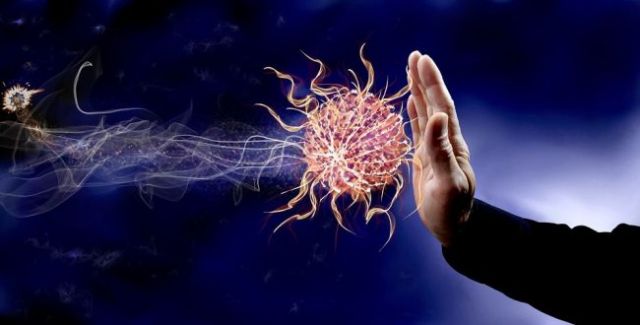Fasting for 72 Hours Can Reboot The Entire Immune System (Video)
by N.Morgan
.jpeg)
Fasting is the long used ancient practice of abstaining from eating for a day, or sometimes even a week or more, and requires discipline. This practice has been used to treat various health issues, and even a brief fast can completely re-boot the immune system.
Yet, while some nutritionists criticize this notion, researchers have discovered that hunger in short spurts can kick-start stem cells into producing new white blood cells, whose role is to fight against foreign invaders such as viruses and bad bacteria.
The findings of scientists at the University of Southern California show that fasting is highly beneficial for people suffering from damaged immune systems, like cancer patients on chemotherapy, or people with auto-immune disorders.
Valter Longo has investigated the effects of fasting on yeast cells and found that when he starved a colony of yeast cells, about 95% of them would commit suicide via apoptosis.
.png)
They would disassemble the proteins, dissolve the cell membranes, and turn themselves into food for the remaining 5%. This means that if the fasting body can rejuvenate and multiply the bone marrow cells responsible for blood and immunity, it could do this as well or better when it has plenty to eat.
The Ayurvedic and Traditional Chinese Medicines believe that the food we consume often puts a strain on the metabolism and digestion. Buddhist monks in the Theravada tradition eat only in the morning, and fast for 16 hours afterward, for the body to process the food. In order to heal or rejuvenate the body, Sikhs often abstain from eating.
On the other hand, we often skip meals, eat more when stressed, eat on the run, or eat processed foods, and all of this confuses our digestive system.
Therefore, a brief fast will reboot the entire immune system and improve health. Here are some fasting options:
Water Fasting- Only water is consumed for a specified duration, to detoxify the body, and treat chronic pain, arthritis, migraines, and more.
Selective Fasting- This is abstention from only certain foods or for certain hours of the day.
Intermittent Fasting – It involved fasting and feasting periods during the day, similar to the practice of the Theravada Monks.
You can also try a half-day fast, by fasting during the morning, and adding a moderate workout. This will maximize the effect of cellular functions which break down fat and free up glycogen for energy-use.
Depending on the fasting option you will decide to try, the effects on your health will vary. However, here are 8 science-backed health benefits of this practice:
Fasting controls blood sugar levels by reducing insulin resistance
It fights inflammation in the body and thus fights off infections, and prevents the development of chronic conditions, like heart disease, cancer, and rheumatoid arthritis
Fasting might help you to delay the aging process and extend longevity
Fasting has been found to help in the prevention of cancer and to boost the effects of chemotherapy
Fasting might improve heart health by lowering blood pressure, cholesterol and triglycerides levels
Fasting accelerates metabolism and limits the intake of calories during the day, so it helps weight loss
It boosts the secretion of the growth hormone, which is essential for growth, weight loss, muscle strength, and metabolism
It might improve the function of the brain and thus lower the risk of neurodegenerative disorders
We have an affiliate program designed for content creators and Affiliate marketers, who would like to sell this product, please click here for affiliate program details. Our affiliate program is designed to help you monetize your screen time.


References:
Comments
Post a Comment